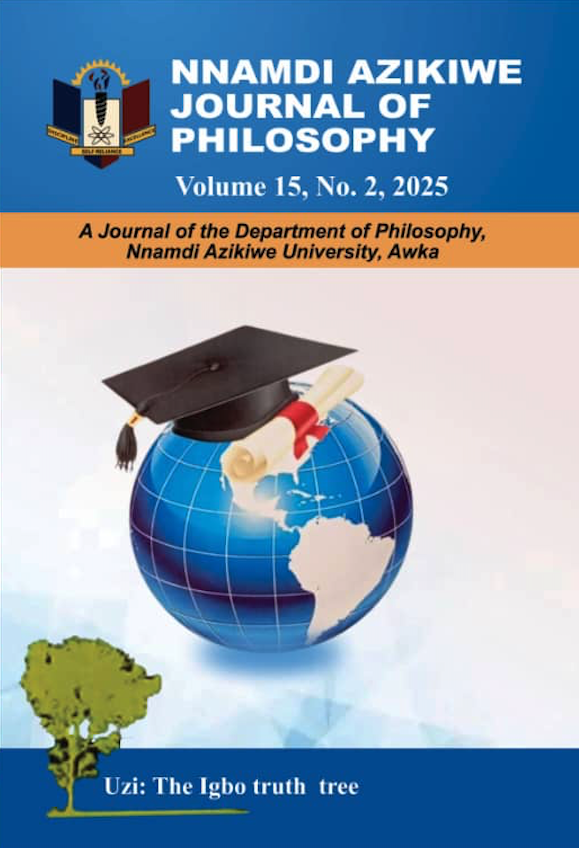EXISTENTIAL IMPLICATIONS OF FAITH AND ABSURDITY AS AUTHENTIC EXISTENCE IN THE PHILOSOPHY OF SOREN KIERKEGAARD
Abstract
Soren Kierkegaard, the Danish melancholic existentialist philosopher and acclaimed father of existentialism, explores the place of faith and absurdity in the human quest for authentic existence. Kierkegaard believes that the path to authentic existence passes through a hierarchical, though not necessarily rigid three stages of existence: aesthetic, ethical, and ultimately the religious stage. Authentic existence is achieved in the last stage, the religious stage which is a life lived in faith in God and most times absurd obedience to his command in a way that transcends thought and rational comprehension. The objective of the paper is to reflect on the meanings and implications of faith and absurdity in Søren Kierkegaard's philosophy as the paths to authentic existence focusing on the diverse implications it has for formulating and holding personal existential credo, spirituality and embracing existential uncertainty. The work adopts expository method as it began with a cursory look at the general meaning of authentic existence, different perspectives on Kierkegaard’s notion of faith and absurdity as the path to authentic existence and then explores the stages in the journey to the authentic existence. This is concluded by exploration of the diverse existential implications of Kierkegaard’s notion of authentic existence and that way proposes a new existential epistemology that, though does not denigrate reason and logic, yet prioritizes faith and absurdity over reason and logic in the search for authentic existence.


